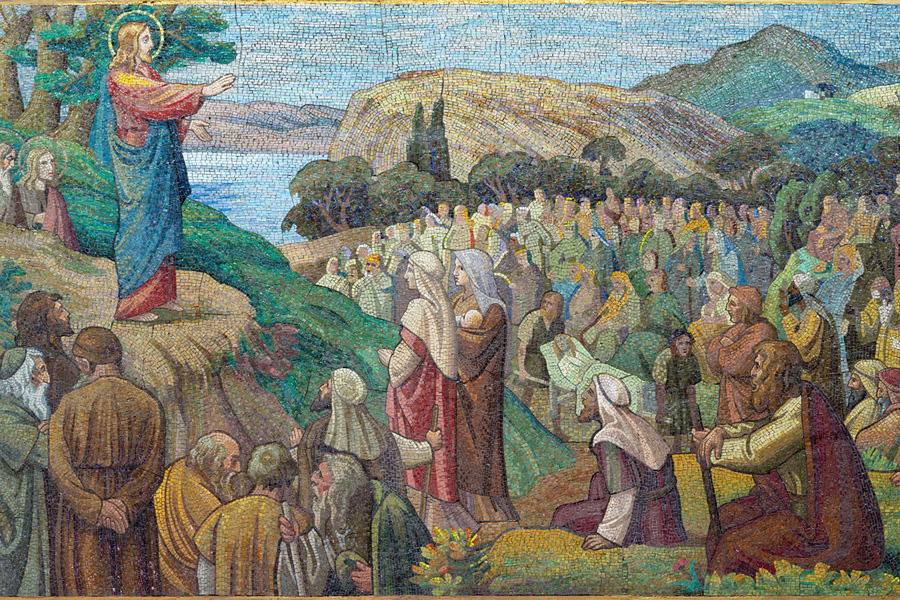
Blessed Are They...
01-29-2023Weekly ReflectionFr. Manasseh Iorchir, VCMany of us have encountered politicians who try to convince us to vote them into public office by explaining to us what is wrong with the system, what they believe, and how they intend to make our lives better. Some of us have also identified with certain political parties or ideologies because of the manifestos that define and moderate their political worldview. We may also have been lured into relationships with businesses and corporations who got us through compelling advertisements of their mission statements that assured us of their position as our best option.
Jesus came to establish the Reign of God on earth and to reconcile humanity to God. The Gospel passage this weekend presents Jesus laying down His “manifesto,” the mission statement, the ordinary but necessary precepts that would be required for membership of this novel kingdom of God He came to establish. St. Matthew situated the Beatitudes at the beginning of the Sermon on the Mount which can be found between the fifth and seventh chapters of his Gospel. In Matthew’s account of Jesus’ beatific declarations, the new lawgiver goes up on the mountain to teach the people who are gathered around Him. This is reminiscent of Moses’ ascension of Mount Sinai from where he brought the decalogue that guided God’s relationship with the people of Israel in the Old Covenant. Christ the New Lawgiver ascends the mountain from where He declared the Beatitudes that would regulate the New Dispensation. As we examine the similarity between Moses and Jesus, we immediately observe few but very important differences. While the Law that Moses midwifed was inscribed on stones, and Moses could not claim to be its author, Jesus’ Beatitudes emanated from the Divine Redeemer’s own authority and were inscribed on the hearts of His listeners through His preaching. In addition, whereas Mosaic Law employed the negative and prohibitory admonition, “thou shall not” to direct compliance, Jesus’ Beatitudes are a positive yet, essential admonition aimed at inspiring virtuous living.
Although all the Beatitudes speak to our need of God’s blessedness and inspire us to virtue, the eighth Beatitude, which declares the state of blessedness on those persecuted for the sake of righteousness, invites us to a deep reflection on the palpable persecution of the righteous even in our time and sometimes in communities in which we live. The righteous is usually persecuted for being a painful reminder to others of their ungodliness, wrong choices, and sometimes an impediment to the vicious fulfilling of their evil desires because he would not cooperate with them. This is why pro-lifers, religious freedom crusaders, equal rights activists and social justice preachers have to face hyperbolic venom through slander, “cancel culture,” threats and even actual death orchestrated by the other sides. This is also why Catholics in some communities, and Christians in many Muslim and communist countries, continue to experience unspeakable persecutions while the world acts like all is well. To all who are persecuted in whatever form for bearing witness to truth and justice, persecution comes with a blessing. It is to such as these that the Kingdom of God belongs.
May we aspire to the blessedness of the Kingdom of God by firmly situating ourselves within the virtues promoted by Christ as the ordinary, but necessary requirements for citizenship in the Kingdom of God.
Please be kind and may God bless you.
Fr. Manasseh
BACK TO LIST